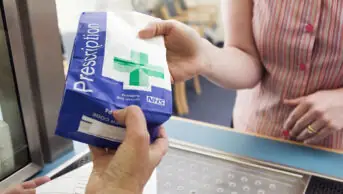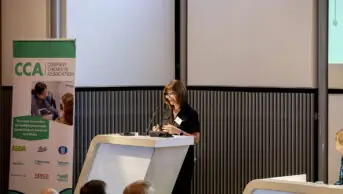
medpics / Alamy Stock Photo
Pharmacy leaders have expressed concern that England will not be able to reach its goal of 3,000 independent prescribing pharmacists in training unless more funding is provided to support supervision.
Health Education England has confirmed to The Pharmaceutical Journal that it will not provide backfill payments to support designated prescribing practitioner (DPP) roles, despite funding thousands of new places on independent prescribing courses over the next year, at £2,000 per place.
Every IP trainee must have a DPP — a doctor or other healthcare professional with at least three years’ independent prescribing experience — to start their course and supervise their ‘experiential learning’.
However, pharmacy leaders are warning that there is a major shortage of DPPs, particularly for pharmacists in the community, and that additional funding is needed to encourage employers to release staff to train others.
During a talk at the Primary Care Pharmacy Association (PCPA) conference on 8 June 2022, David Webb, chief pharmaceutical officer for England, presented a slide about independent prescribing in community pharmacy.
The slide highlighted that a further 2,800 independent prescribing places would be funded over the next two years but that, “in line with other NHS-funded IP trainees”, no backfill funding would be offered to trainees, designated medical practitioners (DMPs) or DPPs.
Confirming the news to The Pharmaceutical Journal, Matt Aiello, national programmes lead for education reform at HEE, said the organisation “recognised” the need to consider long-term workforce solutions, and was “working collaboratively” with system partners, including employers and course providers, to address challenges around access to, and capacity of, prescriber supervision.
“This challenge is not unique to pharmacy, but one that affects all prescriber professions,” he added.
“A range of options and initiatives are in planning, with a focus on expanding supervisor access and capacity across all sectors. The aim of this approach is to ensure a confident, competent designated prescribing practitioner workforce, in the right numbers to meet current and future demand.”
However, Alisdair Jones, lead primary care network (PCN) pharmacist at Total Heath Excellence PCN and member of the English Pharmacy Board, speaking in a personal capacity, said that the lack of funding was a mistake. “Personally, I fail to understand how [Health Education England] expects to achieve the ambition of training up thousands of new prescribers without any additional supervisory support or capacity,” he said.
“All health systems are working flat out with ever-increasing pressures, so it is hard to see where we will find the time to spend at least 90 hours supervising someone else. Although every sector needs support, I also think this has a disproportionate impact on those working in community pharmacy, who may lack the local support networks to find a DPP to begin with.”
Graham Stretch, president of the PCPA, said that without the right support, including not just financial support, but education and mentorship support, this target would not be met.
“Our members would love to support local community pharmacists to gain this qualification,” he said.
“[To do this] we will need us to persuade our clinical directors and their GP partners that this is time that is worth putting aside and won’t be to the financial and efficiency detriment of the organisation — without funding we’re not going to be able to make that argument and we’re not going to get close to the 3,000 [independent prescribing pharmacists target].”
However, Stretch said he was “still optimistic” the funding would appear.
“I’m going to continue to advocate for support, both financial and training, for our senior pharmacists working in primary care so that they can help their colleagues in all sectors to gain this qualification, which we know will bring the profession forward.”
Earlier this year, Community Pharmacy Scotland launched a project looking at how best to support DPPs in Scotland and is providing pharmacy employers with a backfill payment for their time. Under the scheme, 16 DPPs will be recruited to support 2 IP trainees each.


